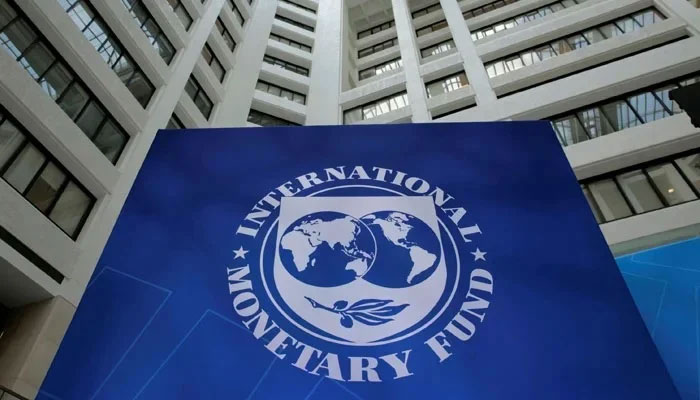Pakistan seeks IMF flexibility on tax shortfall
Under current programme, Islamabad is committed to increasing tax-to-GDP ratio from 9-10% to at least 13%
LAHORE: Some state planners speculate that the IMF might take a lenient view on Pakistan’s revenue shortfall, as the country’s debt servicing savings are double the shortfall in tax revenue. However, would the IMF overlook its commitment to fiscal discipline?
Under the current IMF programme, Pakistan is committed to reducing its fiscal deficit and raising its tax-to-GDP ratio from 9-10 per cent to at least 13 per cent. However, the projected revenue collection shortfall is expected to surpass Rs300 billion by December this year, which would keep the tax-to-GDP ratio stagnant. Although lower interest rates over the past five months have reduced debt servicing costs, shrinking the expected fiscal deficit, can this alone justify the IMF condoning the shortfall in tax collection? This reduction in debt servicing does not reflect efforts by tax authorities.
The IMF typically emphasises fiscal discipline, focusing on sustainable revenue generation, particularly through tax reforms, to reduce reliance on debt. A tax collection shortfall may be seen as a structural issue that could persist, ultimately impacting Pakistan’s economic stability. While the IMF might recognise that reduced debt servicing costs ease short-term fiscal pressures, it is likely to still push Pakistan to improve tax collection for sustainable growth.
If debt servicing costs are significantly lower than projected, and the government can allocate these savings towards other budgetary needs, the IMF may consider short-term flexibility. This could be feasible if the overall fiscal deficit remains controlled, and the debt-to-GDP ratio stays within a manageable range. The IMF has already endorsed the government’s plan to introduce a special power package for industries and consumers.
However, the IMF may still expect Pakistan to outline specific, credible measures to address the revenue shortfall. It might also encourage Pakistan to reinvest any budgetary savings into structural reforms that could drive future revenue growth.
Given that tax collection in Pakistan has consistently fallen short of targets, the IMF is likely to view the current shortfall as a sign of deeper issues in revenue administration. The IMF may encourage Pakistan to use the debt servicing savings not as a temporary fix but as an opportunity to strengthen tax infrastructure, reduce revenue leakages, and expand the tax base.
Pakistan could leverage this situation by arguing that, due to the unexpected savings in debt servicing, the overall budget deficit will remain within IMF-approved limits. The IMF has, in some cases, shown flexibility when a country demonstrates responsible fiscal adjustments or when external factors impact revenue collection.
Furthermore, if Pakistan can demonstrate that the tax shortfall is temporary or driven by external factors -- such as slowed economic activity or inflation impacts -- this might strengthen its case for leniency. However, if the IMF finds that authorities have been lenient on tax-evading sectors, it may push for increased taxation on compliant sectors -- a politically challenging option for the government.
If the IMF agrees to condone the tax shortfall, it will likely attach conditions aimed at ensuring long-term fiscal health. These may include commitments to broaden the tax base, enhance tax compliance, and reduce inefficiencies in revenue collection. The IMF may also require regular progress reports in these areas.
While the IMF might overlook some tax collection slippage if Pakistan’s overall budget deficit remains manageable, it will likely advocate for renewed focus on sustainable tax reforms and fiscal responsibility. This could be an opportunity for Pakistan to negotiate flexible terms, presenting debt savings as a means to strengthen its tax system and achieve long-term fiscal goals.
-
 Winter Olympics 2026: When & Where To Watch The Iconic Ice Dance ?
Winter Olympics 2026: When & Where To Watch The Iconic Ice Dance ? -
 Melissa Joan Hart Reflects On Social Challenges As A Child Actor
Melissa Joan Hart Reflects On Social Challenges As A Child Actor -
 'Gossip Girl' Star Reveals Why She'll Never Return To Acting
'Gossip Girl' Star Reveals Why She'll Never Return To Acting -
 Chicago Child, 8, Dead After 'months Of Abuse, Starvation', Two Arrested
Chicago Child, 8, Dead After 'months Of Abuse, Starvation', Two Arrested -
 Travis Kelce's True Feelings About Taylor Swift's Pal Ryan Reynolds Revealed
Travis Kelce's True Feelings About Taylor Swift's Pal Ryan Reynolds Revealed -
 Michael Keaton Recalls Working With Catherine O'Hara In 'Beetlejuice'
Michael Keaton Recalls Working With Catherine O'Hara In 'Beetlejuice' -
 King Charles, Princess Anne, Prince Edward Still Shield Andrew From Police
King Charles, Princess Anne, Prince Edward Still Shield Andrew From Police -
 Anthropic Targets OpenAI Ads With New Claude Homepage Messaging
Anthropic Targets OpenAI Ads With New Claude Homepage Messaging -
 US Set To Block Chinese Software From Smart And Connected Cars
US Set To Block Chinese Software From Smart And Connected Cars -
 Carmen Electra Says THIS Taught Her Romance
Carmen Electra Says THIS Taught Her Romance -
 Leonardo DiCaprio's Co-star Reflects On His Viral Moment At Golden Globes
Leonardo DiCaprio's Co-star Reflects On His Viral Moment At Golden Globes -
 SpaceX Pivots From Mars Plans To Prioritize 2027 Moon Landing
SpaceX Pivots From Mars Plans To Prioritize 2027 Moon Landing -
 J. Cole Brings Back Old-school CD Sales For 'The Fall-Off' Release
J. Cole Brings Back Old-school CD Sales For 'The Fall-Off' Release -
 King Charles Still Cares About Meghan Markle
King Charles Still Cares About Meghan Markle -
 GTA 6 Built By Hand, Street By Street, Rockstar Confirms Ahead Of Launch
GTA 6 Built By Hand, Street By Street, Rockstar Confirms Ahead Of Launch -
 Funeral Home Owner Sentenced To 40 Years For Selling Corpses, Faking Ashes
Funeral Home Owner Sentenced To 40 Years For Selling Corpses, Faking Ashes




